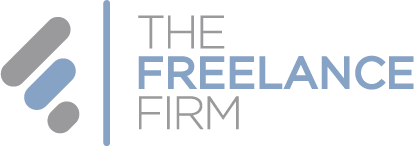Introduction
- Overview: Optimizing billing practices is crucial for small law firms aiming to maximize revenue while minimizing unpaid time. By fine-tuning billing strategies, law firms can ensure they are capturing every billable hour, improving cash flow, and reducing revenue leakage.
- Importance of Proper Billing: Legal services are highly time-dependent, and proper billing practices directly impact profitability and client relationships.
1. Implement Time Tracking Software
Action Item: Invest in user-friendly time tracking tools like Clio, Bill4Time, or TimeSolv to track every minute spent on client work.
- Benefit: Reduces errors and missed time entries.
- How to Optimize: Set up automated timers, record time in real-time, and integrate your time tracking software with your billing system for seamless invoicing.
2. Adopt Clear and Transparent Billing Structures
Action Item: Establish clear, easy-to-understand billing arrangements with clients. This includes setting hourly rates, retainer agreements, and flat fees upfront.
- Benefit: Prevents confusion and disputes over fees.
- How to Optimize: Always communicate billing expectations before work begins, and ensure clients sign a detailed agreement that outlines the billing terms.
3. Regularly Review and Update Hourly Rates
Action Item: Periodically assess and update your hourly rates based on market trends, expertise, and overhead costs.
- Benefit: Ensures that your firm remains competitive and profitable.
- How to Optimize: Conduct an annual rate review and ensure that your rates are aligned with industry standards while accounting for your firm’s experience and specialization.
4. Bill Clients Frequently
Action Item: Send out invoices regularly—whether weekly or bi-weekly—to ensure steady cash flow.
- Benefit: Shortens the payment cycle and reduces unpaid time.
- How to Optimize: Use automated invoicing tools to streamline the process, ensuring timely and consistent billing.
5. Minimize Write-Offs and Adjustments
Action Item: Implement a strict policy for write-offs and billable adjustments. Track all write-offs and provide clear justifications.
- Benefit: Maximizes the revenue collected from clients while keeping the firm’s finances transparent.
- How to Optimize: Use detailed reporting tools to monitor billable hours and flag adjustments in real-time.
6. Automate Billing and Collections
Action Item: Implement automated billing and collections systems to follow up on unpaid invoices, set reminders, and send late payment notices.
- Benefit: Reduces manual errors and streamlines the collection process.
- How to Optimize: Choose a billing platform that includes automated reminders and integrates with payment gateways to accept online payments.
7. Track Unpaid Time and Follow-Up Consistently
Action Item: Set up a system to track unpaid hours and initiate follow-up communication with clients who have outstanding balances.
- Benefit: Helps recover unpaid time and minimizes revenue loss.
- How to Optimize: Regularly review time logs and take immediate action when a payment is delayed.
8. Invest in Client Communication and Relationship Building
Action Item: Keep clients informed on the progress of their cases and billing status.
- Benefit: Strengthens client relationships and encourages timely payments.
- How to Optimize: Set expectations early in the client relationship and keep them updated on the work done and the associated costs.
Conclusion
- Recap: By optimizing billing practices, small law firms can significantly improve revenue while reducing unpaid time. Implementing these strategies will not only increase profitability but also enhance client satisfaction and retention.
- Call to Action: Take action today to streamline your firm’s billing process and start maximizing revenue!


